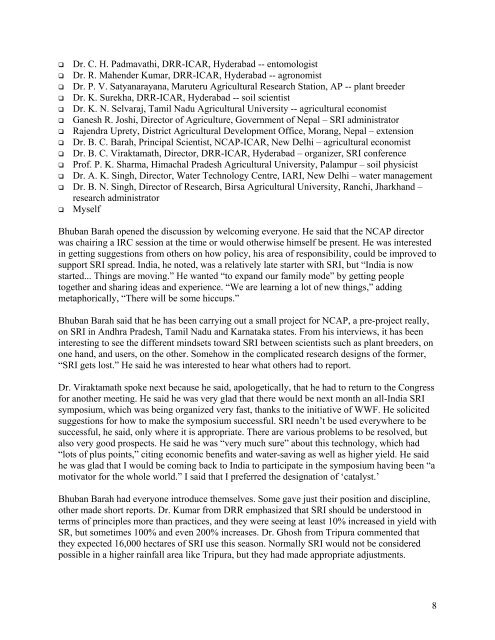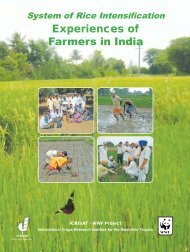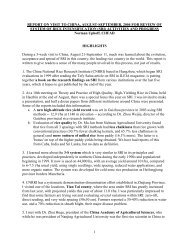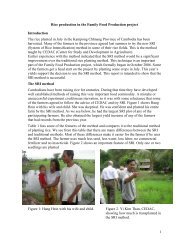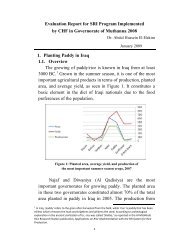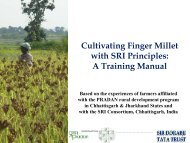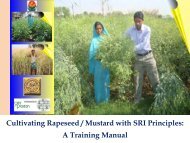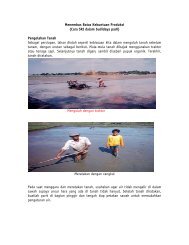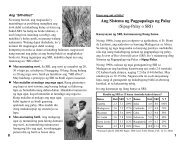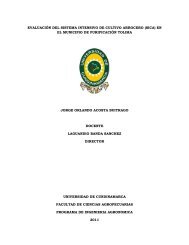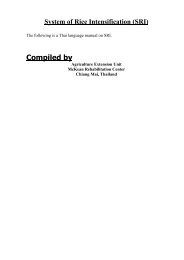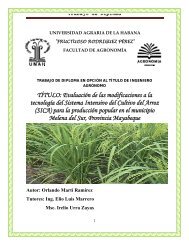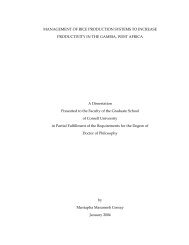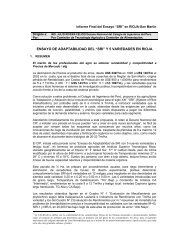REPORT FROM 2ND INTERNATIONAL RICE CONGRESS, NEW ...
REPORT FROM 2ND INTERNATIONAL RICE CONGRESS, NEW ...
REPORT FROM 2ND INTERNATIONAL RICE CONGRESS, NEW ...
Create successful ePaper yourself
Turn your PDF publications into a flip-book with our unique Google optimized e-Paper software.
Dr. C. H. Padmavathi, DRR-ICAR, Hyderabad -- entomologist<br />
Dr. R. Mahender Kumar, DRR-ICAR, Hyderabad -- agronomist<br />
Dr. P. V. Satyanarayana, Maruteru Agricultural Research Station, AP -- plant breeder<br />
Dr. K. Surekha, DRR-ICAR, Hyderabad -- soil scientist<br />
Dr. K. N. Selvaraj, Tamil Nadu Agricultural University -- agricultural economist<br />
Ganesh R. Joshi, Director of Agriculture, Government of Nepal – SRI administrator<br />
Rajendra Uprety, District Agricultural Development Office, Morang, Nepal – extension<br />
Dr. B. C. Barah, Principal Scientist, NCAP-ICAR, New Delhi – agricultural economist<br />
Dr. B. C. Viraktamath, Director, DRR-ICAR, Hyderabad – organizer, SRI conference<br />
Prof. P. K. Sharma, Himachal Pradesh Agricultural University, Palampur – soil physicist<br />
Dr. A. K. Singh, Director, Water Technology Centre, IARI, New Delhi – water management<br />
Dr. B. N. Singh, Director of Research, Birsa Agricultural University, Ranchi, Jharkhand –<br />
research administrator<br />
Myself<br />
Bhuban Barah opened the discussion by welcoming everyone. He said that the NCAP director<br />
was chairing a IRC session at the time or would otherwise himself be present. He was interested<br />
in getting suggestions from others on how policy, his area of responsibility, could be improved to<br />
support SRI spread. India, he noted, was a relatively late starter with SRI, but “India is now<br />
started... Things are moving.” He wanted “to expand our family mode” by getting people<br />
together and sharing ideas and experience. “We are learning a lot of new things,” adding<br />
metaphorically, “There will be some hiccups.”<br />
Bhuban Barah said that he has been carrying out a small project for NCAP, a pre-project really,<br />
on SRI in Andhra Pradesh, Tamil Nadu and Karnataka states. From his interviews, it has been<br />
interesting to see the different mindsets toward SRI between scientists such as plant breeders, on<br />
one hand, and users, on the other. Somehow in the complicated research designs of the former,<br />
“SRI gets lost.” He said he was interested to hear what others had to report.<br />
Dr. Viraktamath spoke next because he said, apologetically, that he had to return to the Congress<br />
for another meeting. He said he was very glad that there would be next month an all-India SRI<br />
symposium, which was being organized very fast, thanks to the initiative of WWF. He solicited<br />
suggestions for how to make the symposium successful. SRI needn’t be used everywhere to be<br />
successful, he said, only where it is appropriate. There are various problems to be resolved, but<br />
also very good prospects. He said he was “very much sure” about this technology, which had<br />
“lots of plus points,” citing economic benefits and water-saving as well as higher yield. He said<br />
he was glad that I would be coming back to India to participate in the symposium having been “a<br />
motivator for the whole world.” I said that I preferred the designation of ‘catalyst.’<br />
Bhuban Barah had everyone introduce themselves. Some gave just their position and discipline,<br />
other made short reports. Dr. Kumar from DRR emphasized that SRI should be understood in<br />
terms of principles more than practices, and they were seeing at least 10% increased in yield with<br />
SR, but sometimes 100% and even 200% increases. Dr. Ghosh from Tripura commented that<br />
they expected 16,000 hectares of SRI use this season. Normally SRI would not be considered<br />
possible in a higher rainfall area like Tripura, but they had made appropriate adjustments.<br />
8


